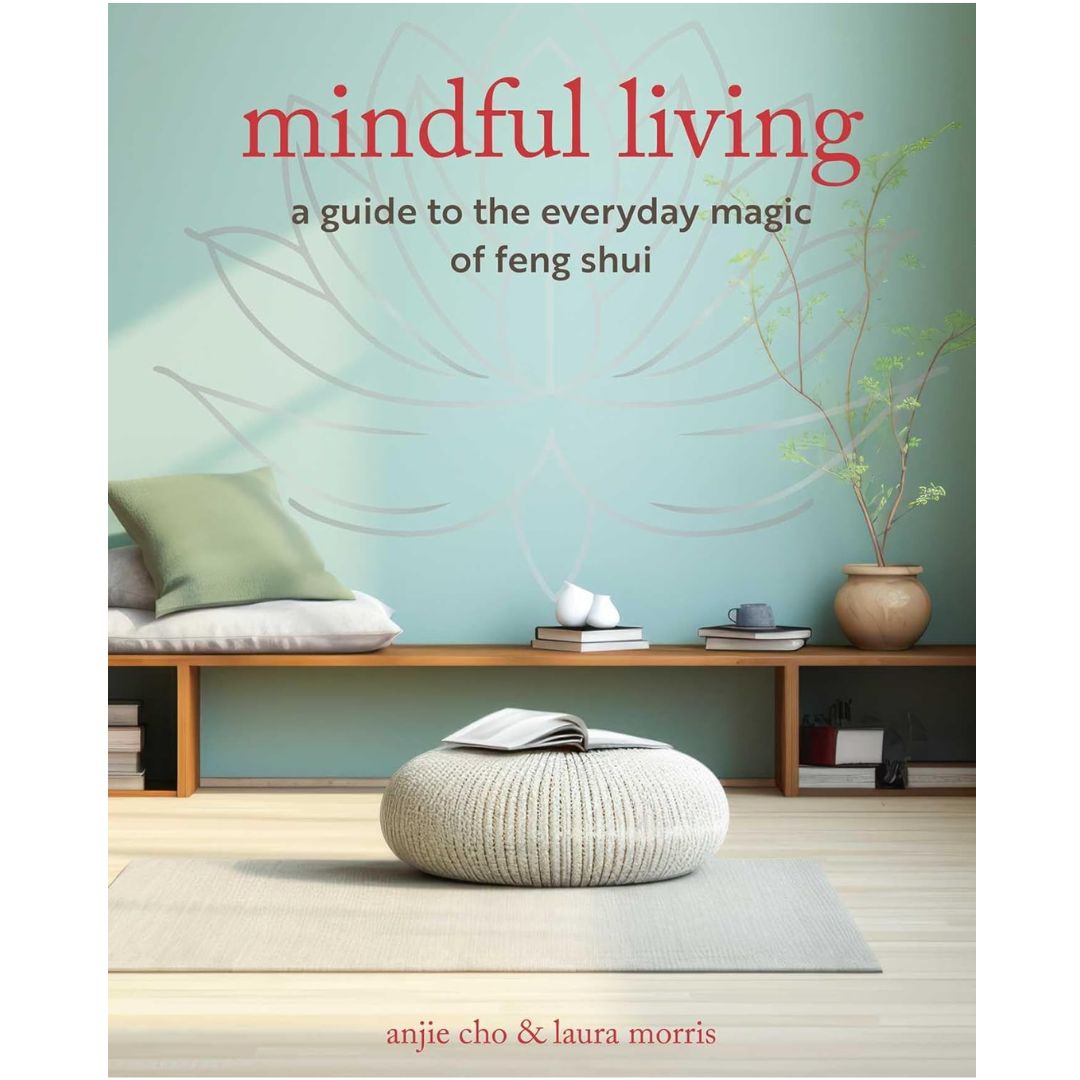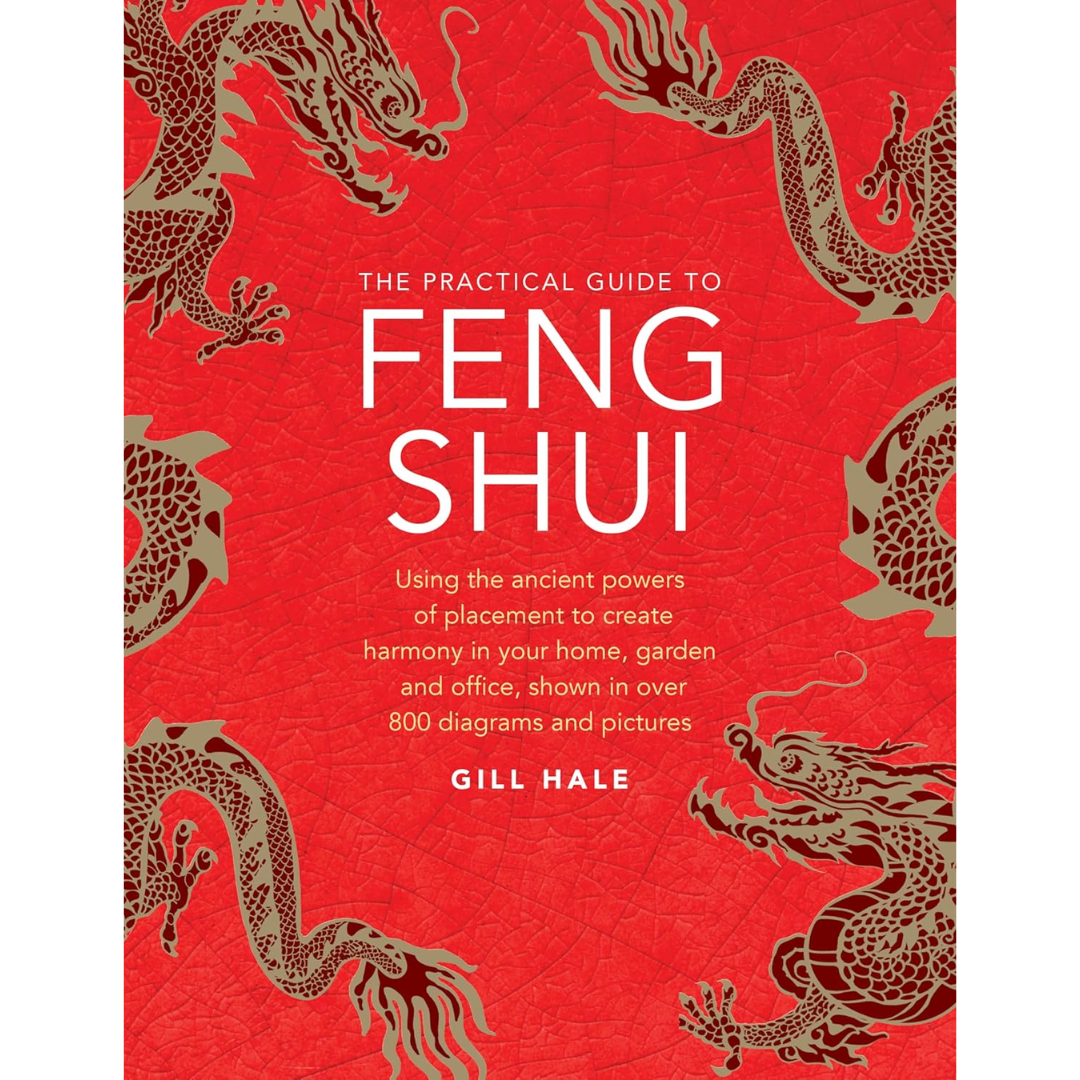How to Make Feng Shui Work for a Small Apartment — 5 Ways to Positive Energy Flow, Even in a Shoebox
Want to bring balance and harmony to your small apartment? Here's how experts make Feng Shui work when space is at a premium
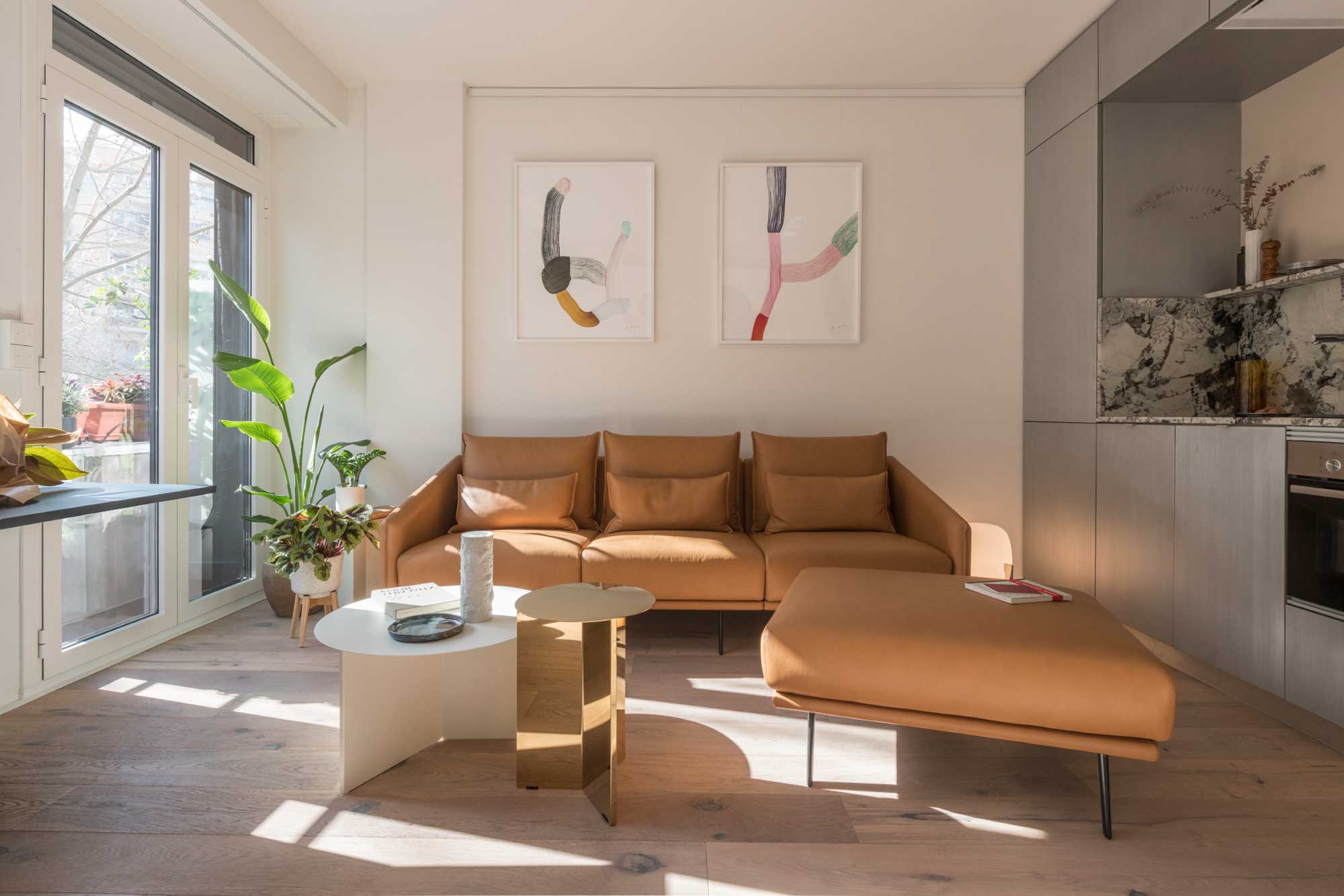

Feng Shui, the ancient Chinese art of arranging spaces to promote balance and harmony, can be a brilliant way to guide your decorating ideas. If you're struggling on where to place furniture or how to arrange your floorplan, the rules of Feng Shui often decide for you. But these configurations become far more difficult when dealing with small apartments.
Finessing Feng Shui can be difficult enough in large homes. The practice has particular rules around the direction furniture should face, its relation to doorways and windows, and how it interacts with other surrounding features. Achieving this balance in a small apartment — where space is already at a premium — is no mean feat (and harder still if you're renting).
Luckily, there are some people who are well-versed in making Feng Shui work in even the tightest of spaces. While each individual home demands different approaches, Feng Shui practitioners know which principles should be prioritized in smaller homes to promote a positive flow of chi (or energy). Here, we ask them for their top tips for applying this ancient art in your apartment so you can reap its benefits.
1. Stay On Top of Clutter

Neutral tones used throughout the living space with a large statement lamp placed above a coffee table
Decluttering for better Feng Shui is one of the easiest ways to apply this practice to your space and immediately notice the effects. Keeping spaces clear and clutter free, and making sure everything you own has a home, is one of the most important tenets of Feng Shui that anybody can apply, no matter the size of your home.
Besides being visually "cleaner", adopting a more minimalist, clutter-free mindset will promote a better flow of chi inside your home (the core principle of Feng Shui). "Because the space is already small, being extremely focused on reducing clutter and organizing is super important, allowing energy to flow," explains holistic interior designer, Gala Magriñá. "This alone can make a space feel light, even if it's smaller."
2. Prioritize Your Apartment's Entrance
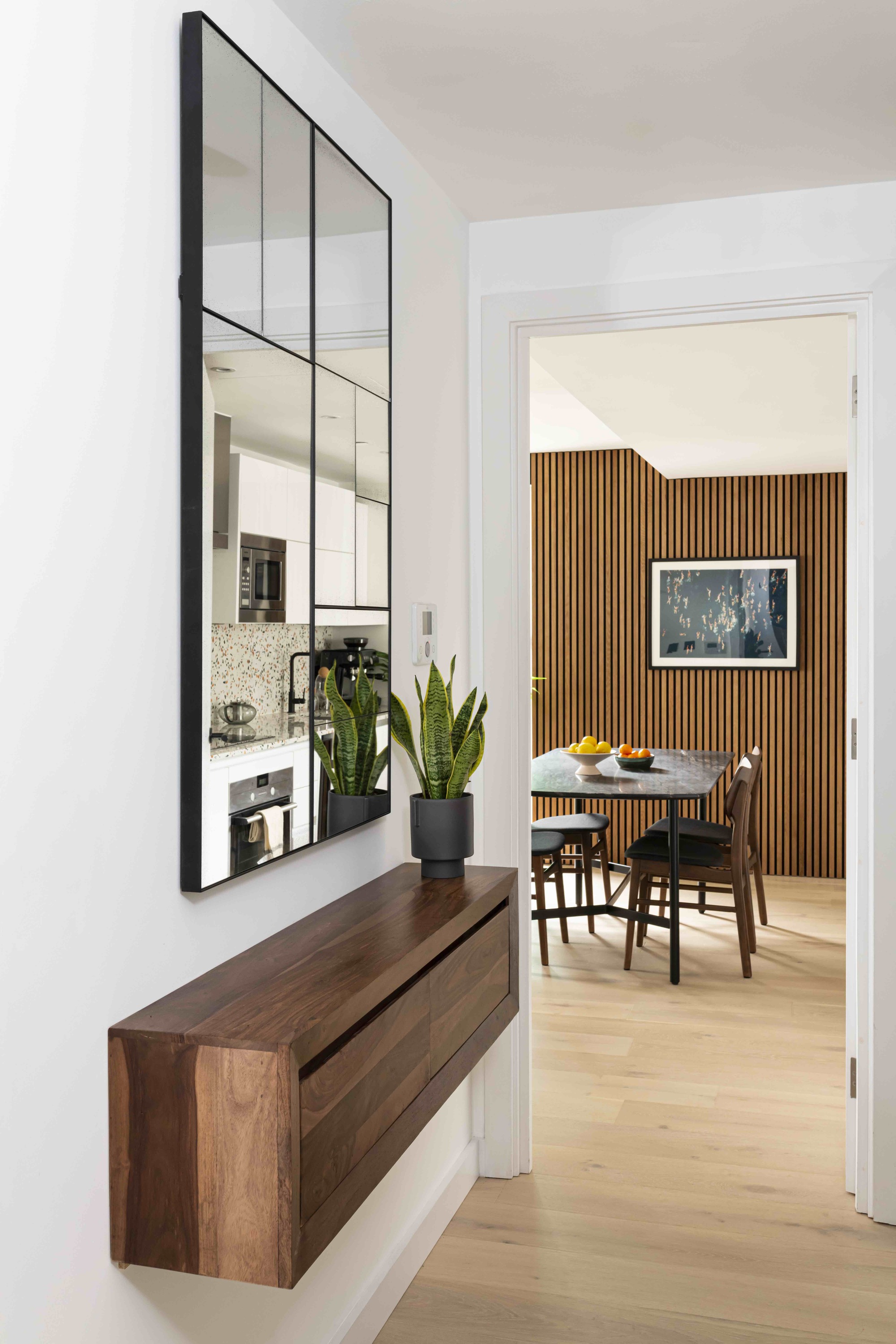
A large mirror is place in an entryway apartment, with oak wood shelving and a Feng Shui snake plant
According to the Chinese philosophy, entryway Feng Shui rules require a clear path from the entrance. "The main entryway is the 'mouth of Chi' so it should be welcoming, well-lit, and free of obstructions," says Erin Ratliff, a certified Feng Shui practitioner and founder of Synergetic Spaces.
Unlike large, detached homes, apartment entryways are usually tight. As a result, the floorplan makes it hard to adhere to key Feng Shui principles like this one. For example, a direct view into the kitchen from the entryway is advised against as it can cause the "wealth energy" that's associated with the kitchen to leak out as soon as someone enters.
"In many rentals, you enter the apartment immediately into the kitchen," says Gala. "In smaller apartments, this layout is often unavoidable, but a simple fix is keeping the door to the kitchen closed to create a more intentional first impression."
That said, to promote positive chi, you should also avoid a straight line from the front door to a back door or window. This might mean using a room divider or a piece of furniture to break up the path from your apartment entryway through the rest of your home to encourage the flow of energy within your space.
More generally, try to make room for an entryway of sorts, even if the front door of your apartment leads straight to a hallway. According to Gala, an initial welcoming space by the threshold is important in Feng Shui. "It serves as a buffer between the public world and your private realm and provides a moment for transition," she says. "While this can be challenging in a smaller home, incorporating even a subtle entryway can make a meaningful difference."

Gala’s creative journey began in 2008 with the launch of M Crown Productions, an award-winning design and production agency, which paved the way for a flourishing career in interior design. In 2016, Gala embraced meditation, which sparked her interest in holistic design and mindfulness practices. This shift led her to transition from events and temporary spaces to permanent interiors, a direction that continues to shape her business mission.
3. Harness the "Command Position" With Diagonal Arrangements
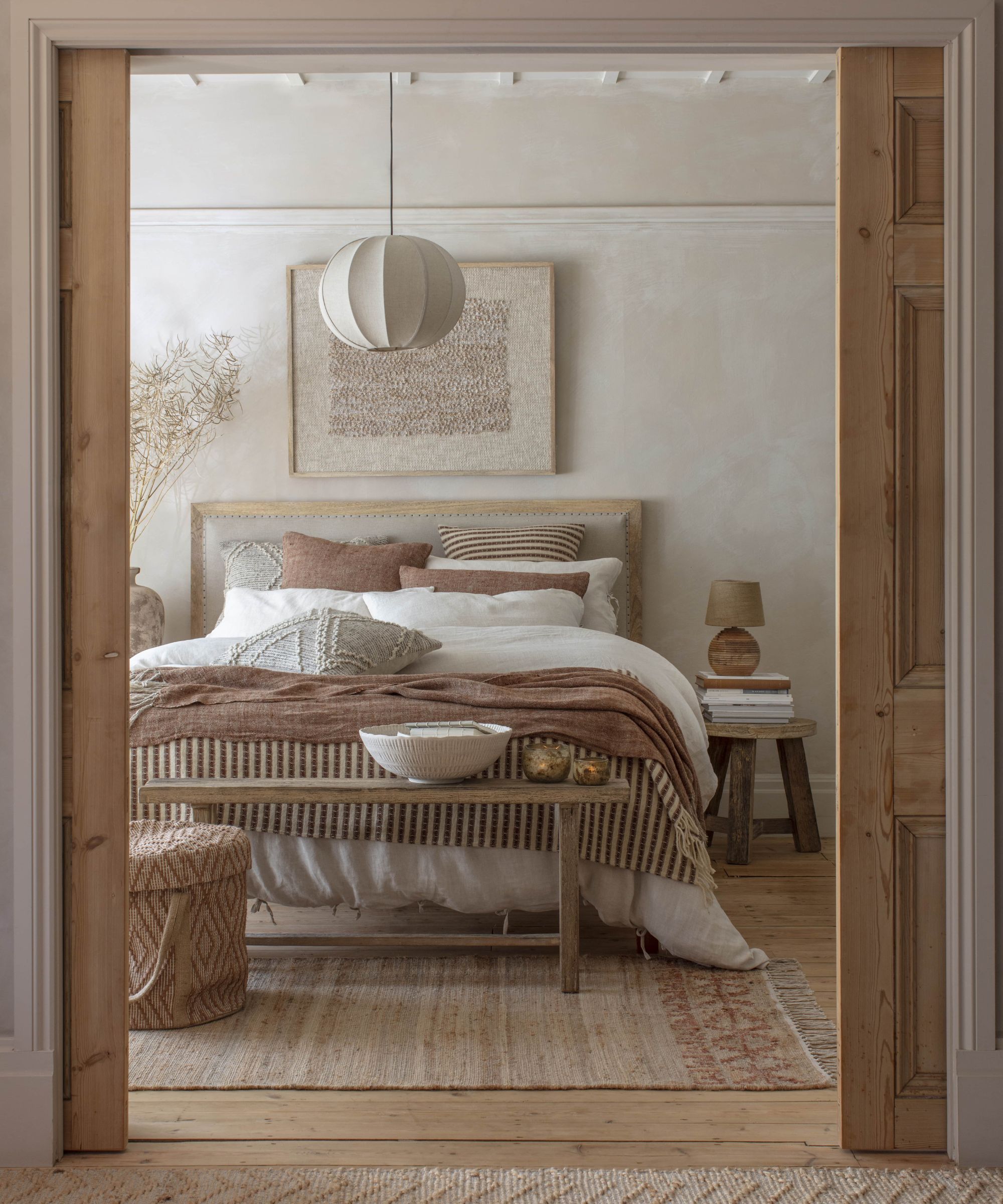
A cottage-core style bedroom with toned down colors and limewashed walls. This space created an element of calm and peace
A core principle of Feng Shui is the command position. This rule generally applies to beds or desks, proposing that these pieces of furniture should have a clear view of a room's entrance as well as a solid wall behind to provide a sense of security and control over the space.
In small rooms, configuring the space to comply with the command position can be difficult. "To achieve a commanding position in a small room, place your bed diagonally across from the door, so you can see the entryway while lying down, but not directly facing it," suggests Gala. "This optimizes space while still allowing you to monitor the room's entrance from your bed."
If your bed or desk can’t be in the perfect command position, Gala recommends experimenting with different arrangements to see how they feel. "If you can find a setup that feels comfortable and at ease, second best but will work," she notes. "The more attuned we are to a space and its decor elements, the more mindful and intentional our home becomes, ultimately creating a more nurturing and supportive environment."
4. Opt for Open Floor Plans to Promote Good Chi
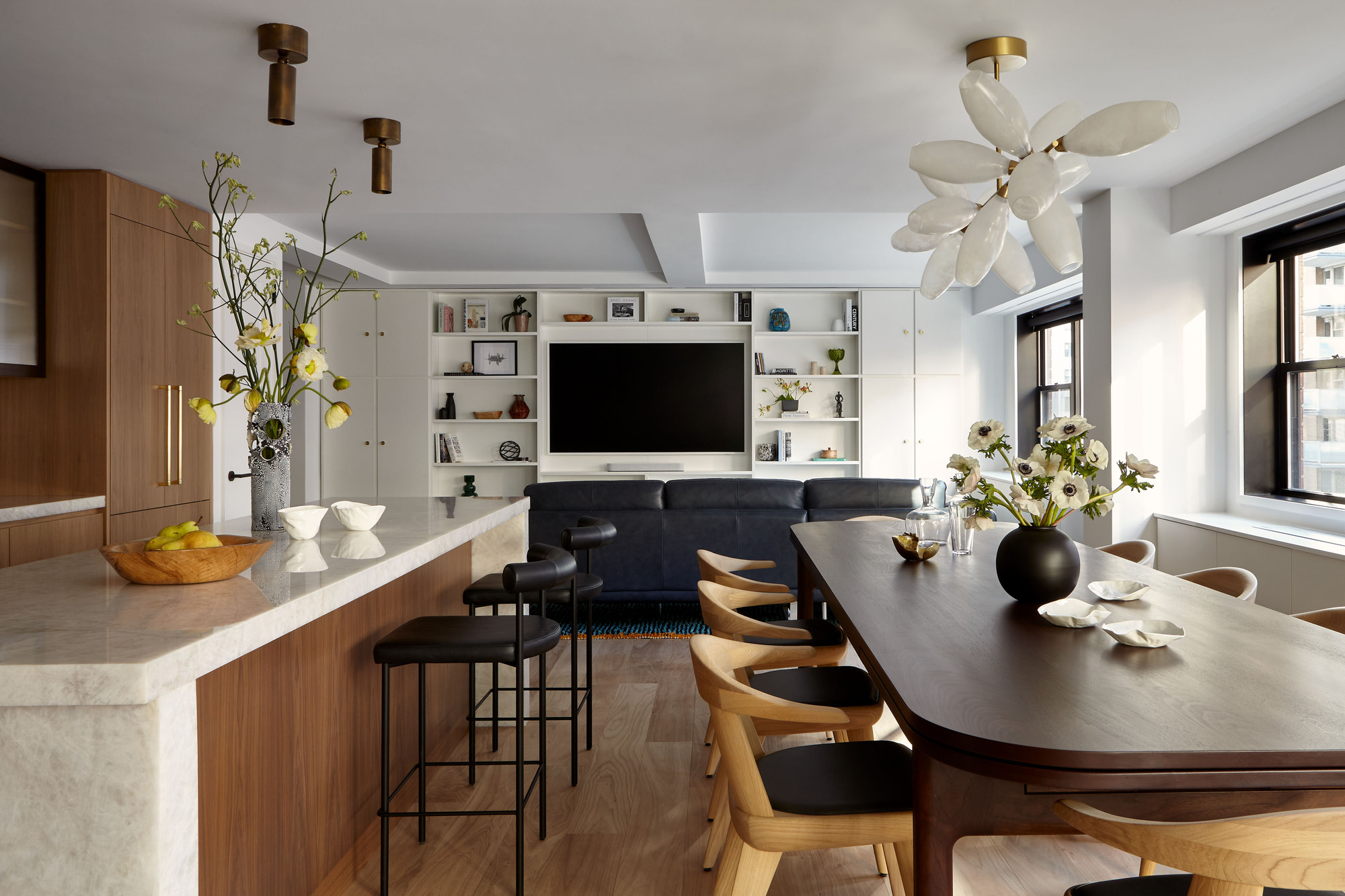
Wooden textures are used throughout this kitchen and open plan living space creating a neutral and natural space within the home
Unsurprisingly, an open concept floor plan can help with the movement of chi around your home, as well as inviting more natural light into your space (said to promote vitality in Feng Shui). This can be especially helpful in a small apartment where tighter and more angular spaces are likely.
"Small apartments tend to have weird nooks and crannies that can make the space feel off or weird," Gala explains. "If you can help it, look for spaces that are as open and flowing as possible in your apartment hunt."
If your small apartment is closed concept, consider leaving certain doors open to improve the flow of chi. If you already have an open plan layout you should harness the blueprint, but it's important consider the placement of furniture and elements within the space to avoid Feng Shui mistakes (like having the kitchen in view from the entryway, for example).

Holistic home-health coach Erin Ratliff is a certified Feng Shui Consultant and Reiki practitioner helping homeowners and residents optimize their homes, offices and lives through earth harmony, energy clearing, simplicity and sustainability. As an accredited Red Ribbon professional of the International Feng Shui Guild, she specializes in elevating and balancing spaces to attract greater peace and prosperity. She also offer Human Design chart readings and analysis. Serving the Western North Carolina area with in-person and virtual consults.
5. Use Mirrors Wisely
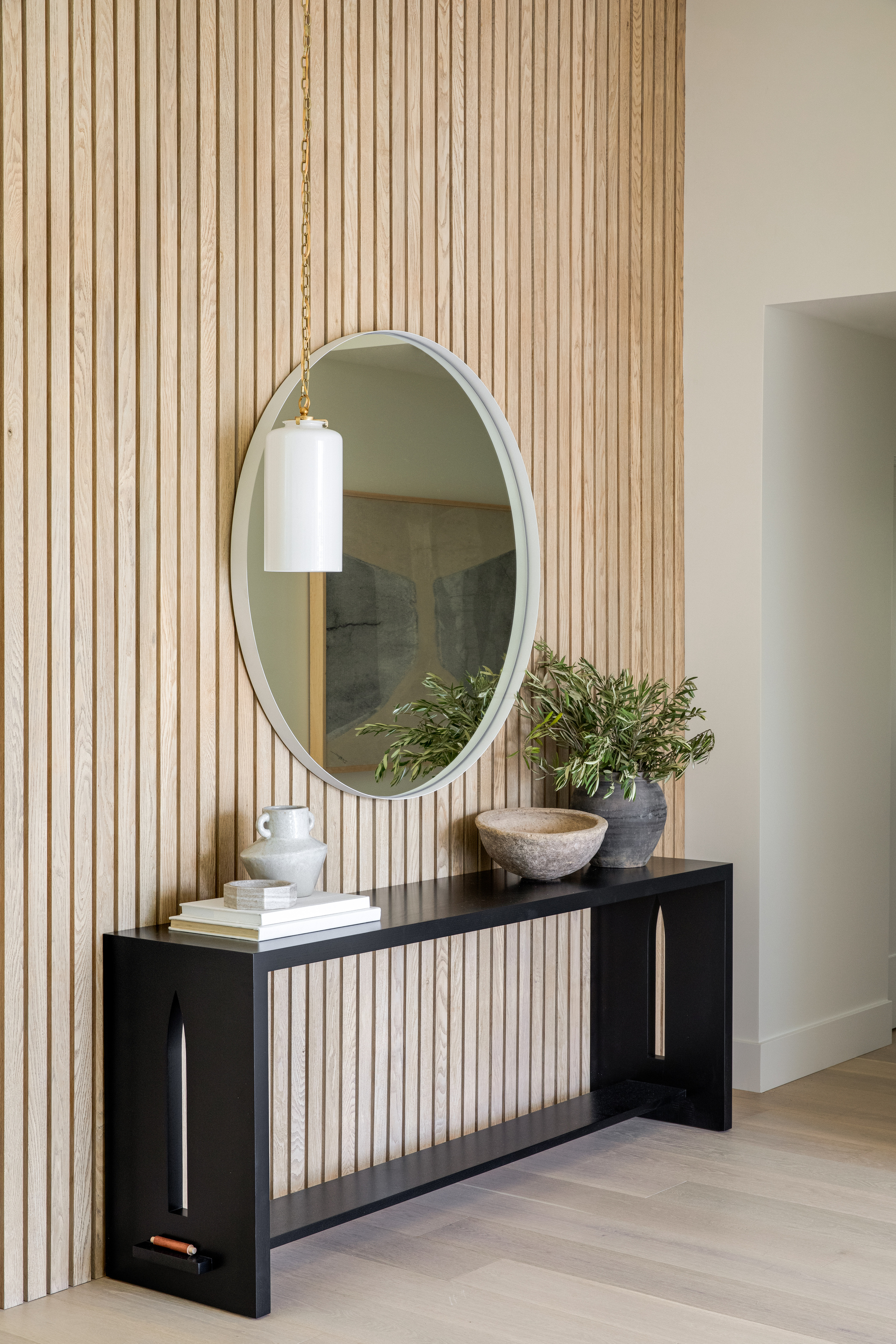
A circular mirror by the entryway with a stylish console table. A light pendant elegantly hangs from the ceiling drawing in different textures, materials and shapes into the space
Feng Shui mirror rules are another key consideration when designing a home, and they're especially important in small apartments due to the limited space available. "Mirrors can reflect and amplify energy, so they should be placed carefully to avoid reflecting clutter or negative energy," says Erin.
For example, you should avoid placing mirrors directly in front of doors. Instead, placing them perpendicular is preferable. They shouldn't hang above beds or seating, either, and the view they reflect should be positive. As a general rule of thumb, placing mirrors east or north walls is favorable in Feng Shui as these directions promote a positive energy flow related to career, health, and family life.

Price: £16.44
Make sense of the ancient principles of Feng Shui with this book, which looks at the practice through a modern lens. It argues that Feng Shui has even more relevance in our current age, unpacking how our homes and workspaces have a newfound and outsized impact on our well-being.
FAQs
What Is the Best Direction for an Apartment to Face in Feng Shui?
We can't control every element or feature inside our homes, but if you're looking to move, you might want to give a thought to the direction your apartment faces to be in keeping with the best Feng Shui practices.
Generally, the most auspicious direction for both apartments and houses is south, as this direction is associated with the most light and prosperity.
From harnessing the command position in tight floorplans to repositioning your mirrors for a better flow of chi, there are plenty of simple ways to improve the Feng Shui design in your smaller home. Even if you're a renter, switching up the placement of your furniture could be all it takes.
Applying Feng Shui to a small apartment might pose more challenges than a larger home, but with these tips you can prioritize the core principles of this ancient philosophy to create a more harmonious space that promotes a better energy flow.
Be The First To Know
The Livingetc newsletters are your inside source for what’s shaping interiors now - and what’s next. Discover trend forecasts, smart style ideas, and curated shopping inspiration that brings design to life. Subscribe today and stay ahead of the curve.

Lilith Hudson is a freelance writer and regular contributor to Livingetc. She holds an MA in Magazine Journalism from City, University of London, and has written for various titles including Homes & Gardens, House Beautiful, Advnture, the Saturday Times Magazine, Evening Standard, DJ Mag, Metro, and The Simple Things Magazine.
Prior to going freelance, Lilith was the News and Trends Editor at Livingetc. It was a role that helped her develop a keen eye for spotting all the latest micro-trends, interior hacks, and viral decor must-haves you need in your home. With a constant ear to the ground on the design scene, she's ahead of the curve when it comes to the latest color that's sweeping interiors or the hot new style to decorate our homes.
-
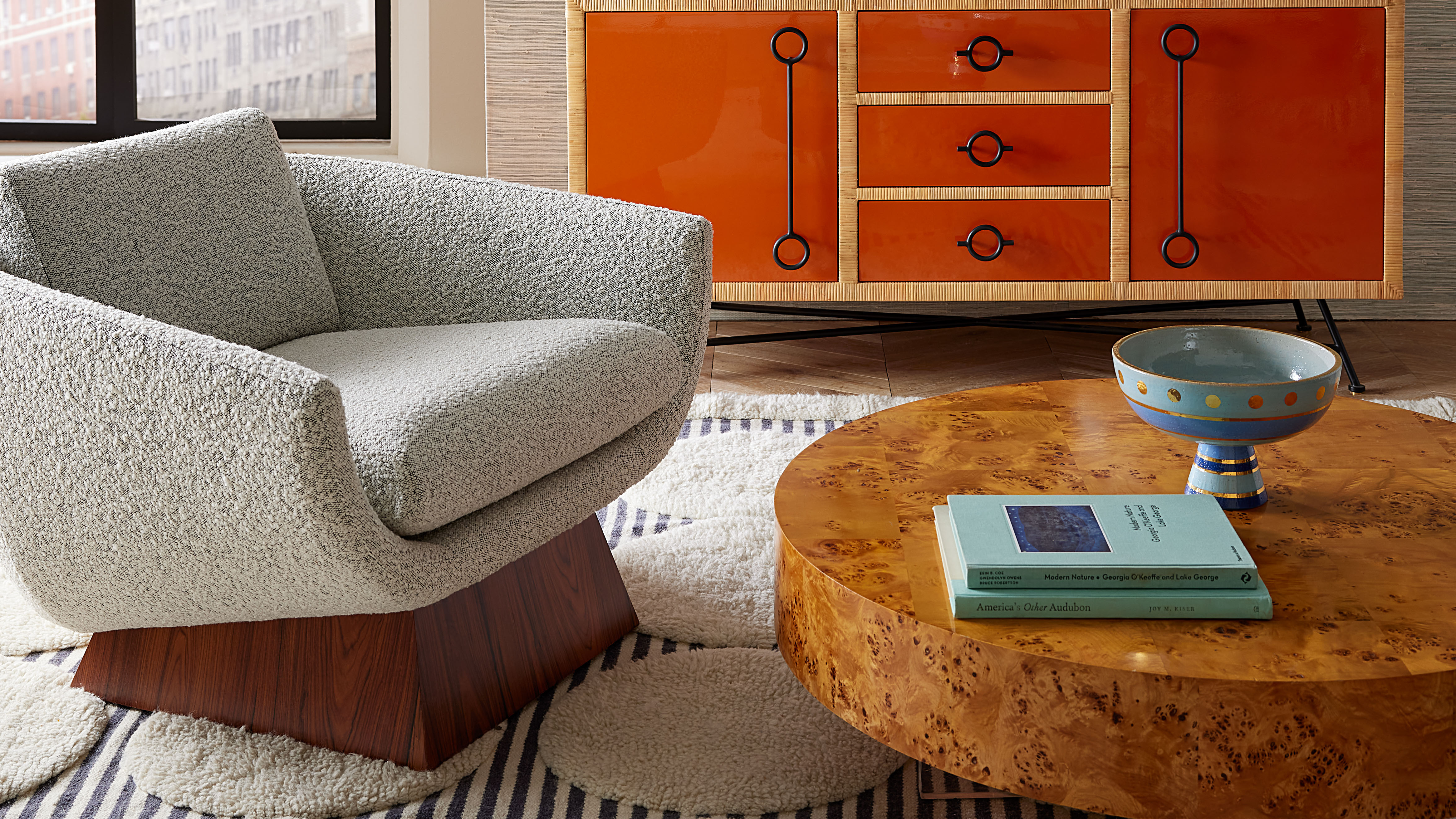 Burl Wood Decor Is 2025’s Most Coveted Comeback — Here’s How to Get the Storied Swirls for Less
Burl Wood Decor Is 2025’s Most Coveted Comeback — Here’s How to Get the Storied Swirls for LessIrregularity is the ultimate luxury, but you don’t need an antiques dealer to find it
By Julia Demer Published
-
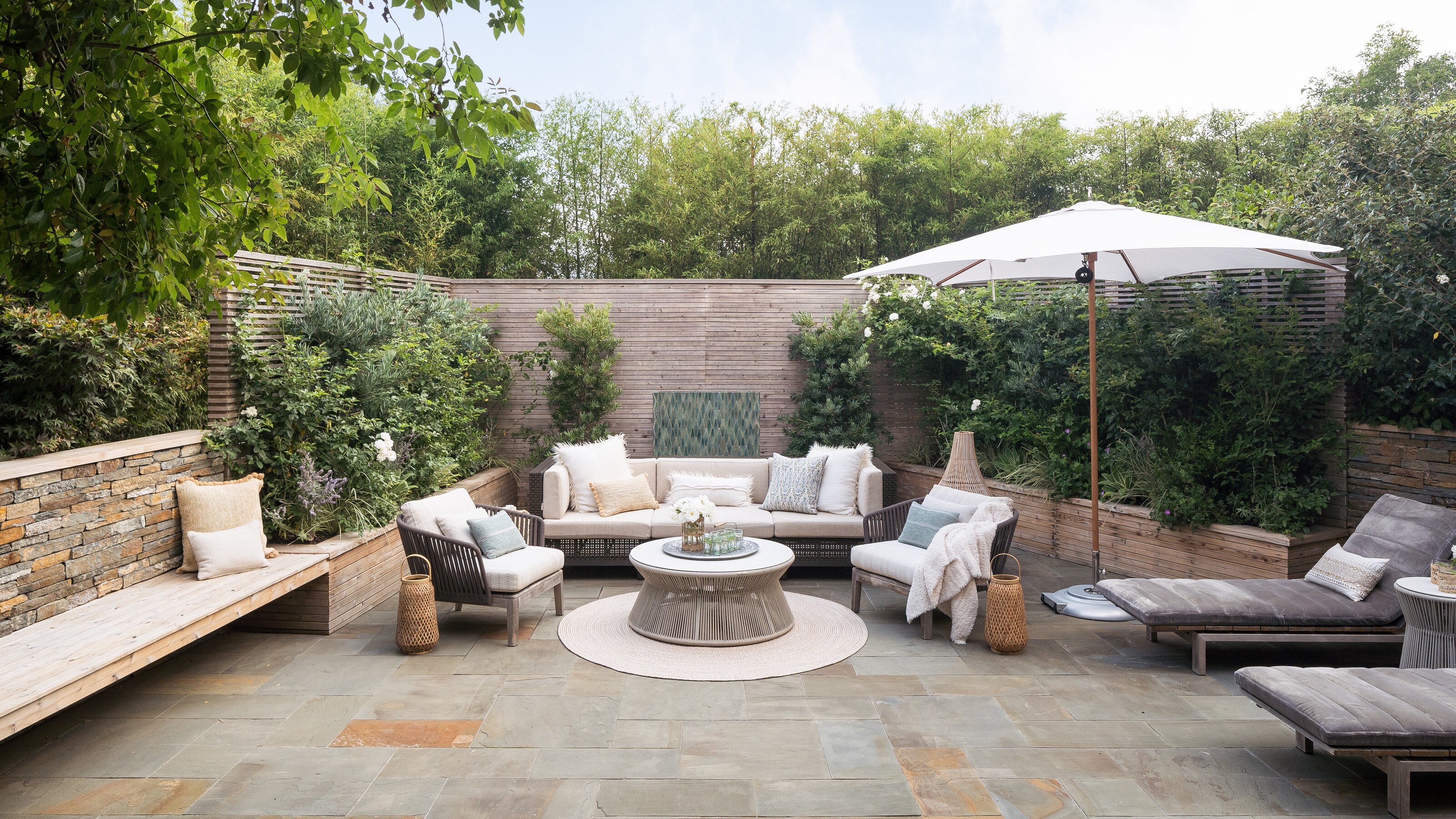 5 Garden Features That Instantly Add Value to Your Home — While Making Your Outdoor Space More Practical, too
5 Garden Features That Instantly Add Value to Your Home — While Making Your Outdoor Space More Practical, tooGet to know all the expert tips and tricks for making your backyard a standout selling point for your home.
By Maya Glantz Published
-
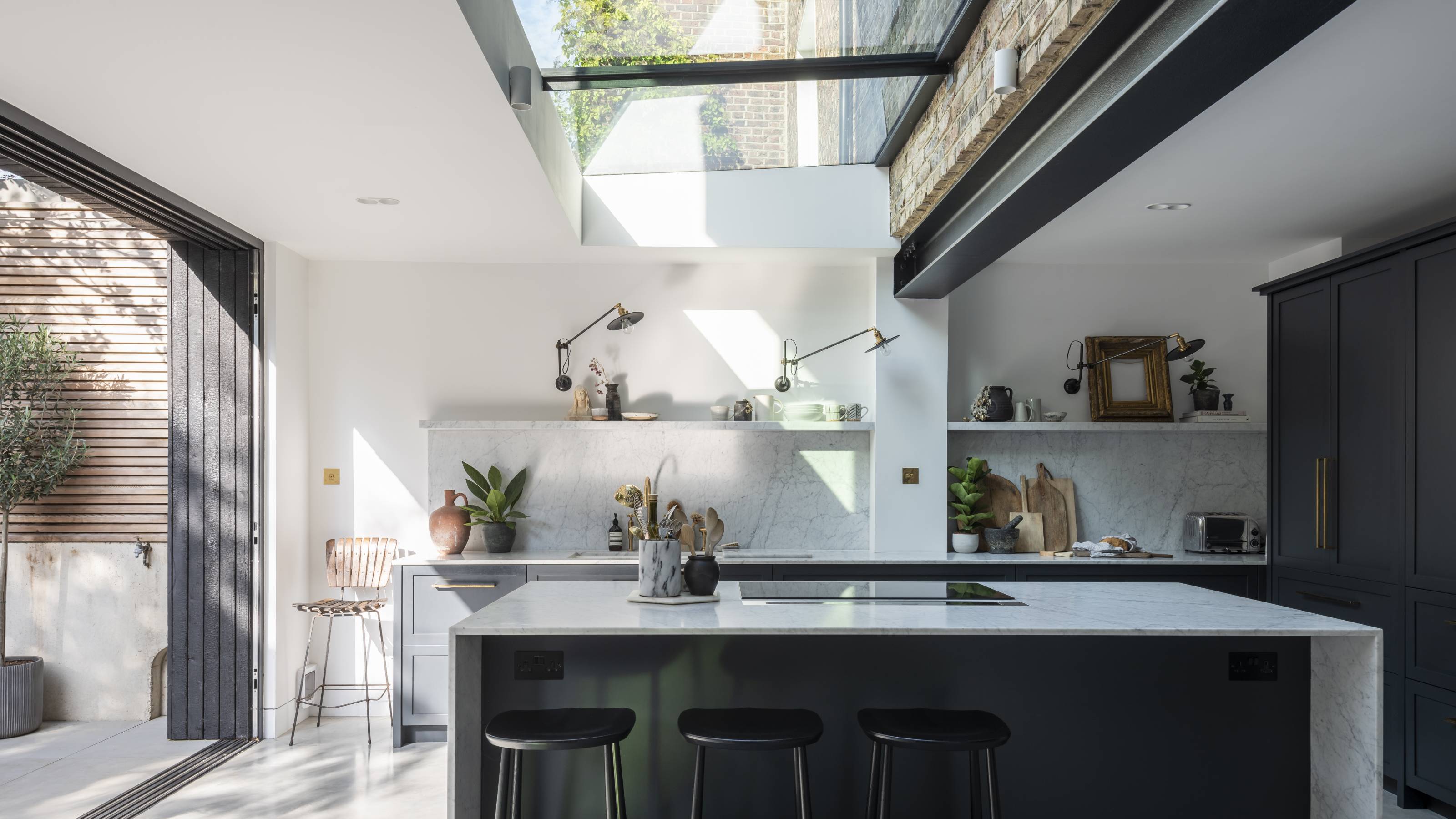 How Much Does an Extension Cost in 2025? Renovation and Design Experts Break Down Your Budget
How Much Does an Extension Cost in 2025? Renovation and Design Experts Break Down Your BudgetExplore how much different types of extensions cost in 2025 to budget for your project accurately
By Amy Reeves Published
-
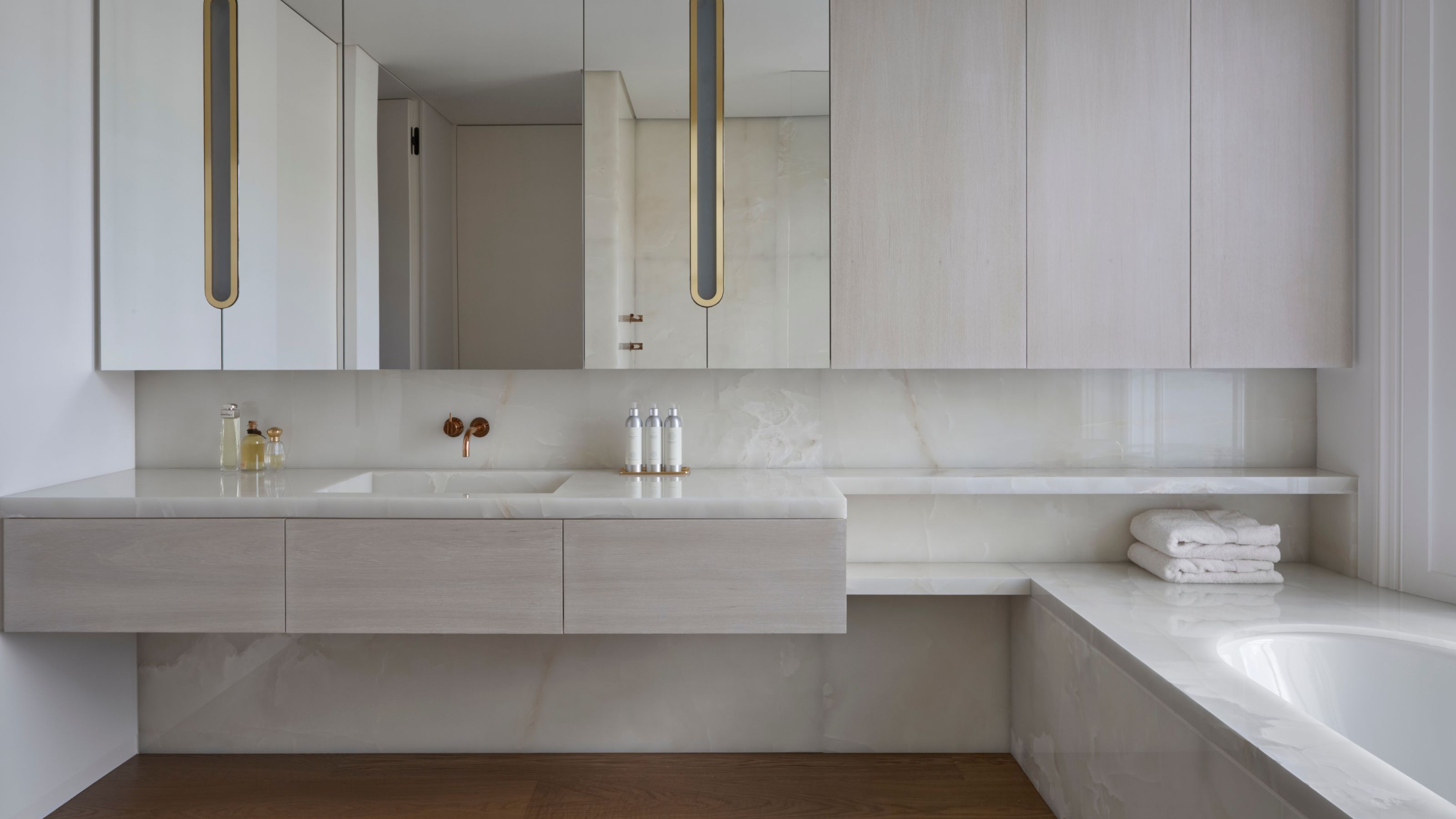 9 Bathroom Storage Mistakes You're Probably Making That Make Using This Space Much Harder — And What to Do Instead
9 Bathroom Storage Mistakes You're Probably Making That Make Using This Space Much Harder — And What to Do InsteadDiscover which mistakes are to blame for your overcrowded and cluttered bathroom
By Seraphina Kyprios Published
-
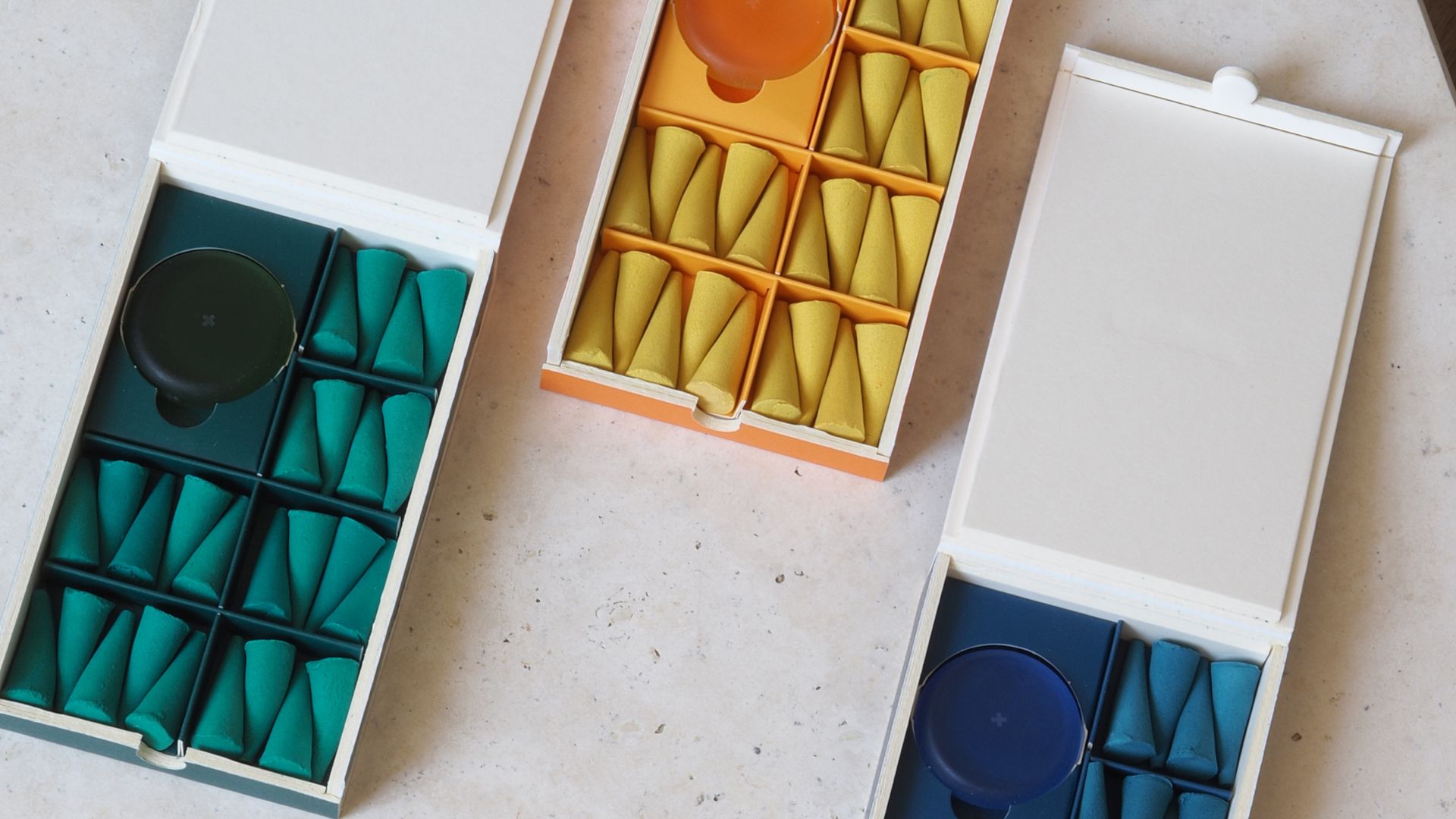 These 'Scenting Droplets' Might Be the Coolest (and Most Stylish) Way to Make Your Home Smell Amazing
These 'Scenting Droplets' Might Be the Coolest (and Most Stylish) Way to Make Your Home Smell AmazingIf you're looking to switch out your incense sticks for something more fun, then you should know about Ripple+'s incense droplets. Let me introduce you.
By Amiya Baratan Published
-
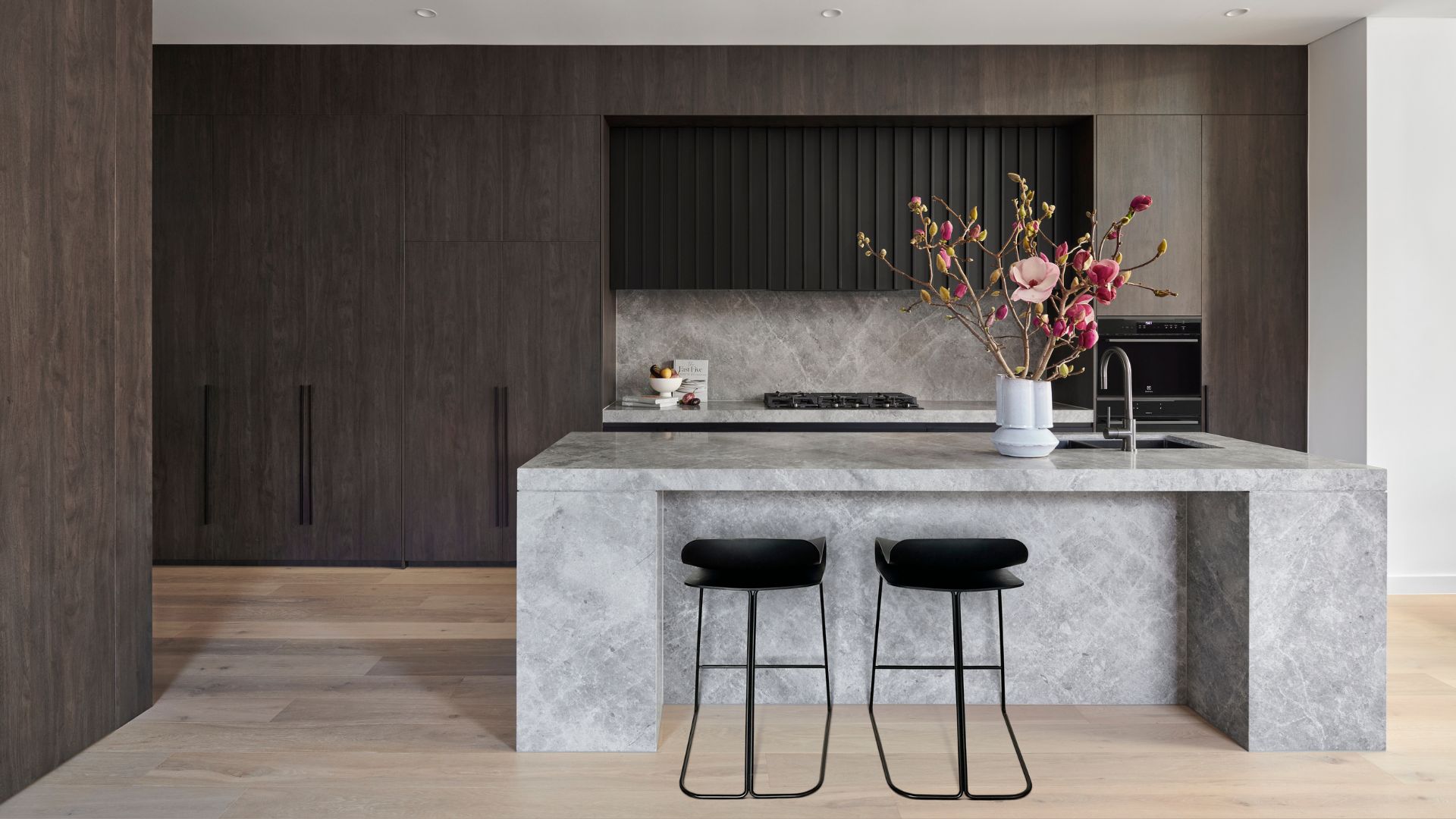 The Japanese Principle of Iki (粋) Is All About 'Refined Elegance' — Here's How to Embrace It in Your Home
The Japanese Principle of Iki (粋) Is All About 'Refined Elegance' — Here's How to Embrace It in Your HomeIf your interior vibe is all about refined elegance and opulent minimalism, you need to know about the Japanese principle of 'Iki'. Here's how to bring it home.
By Amiya Baratan Published
-
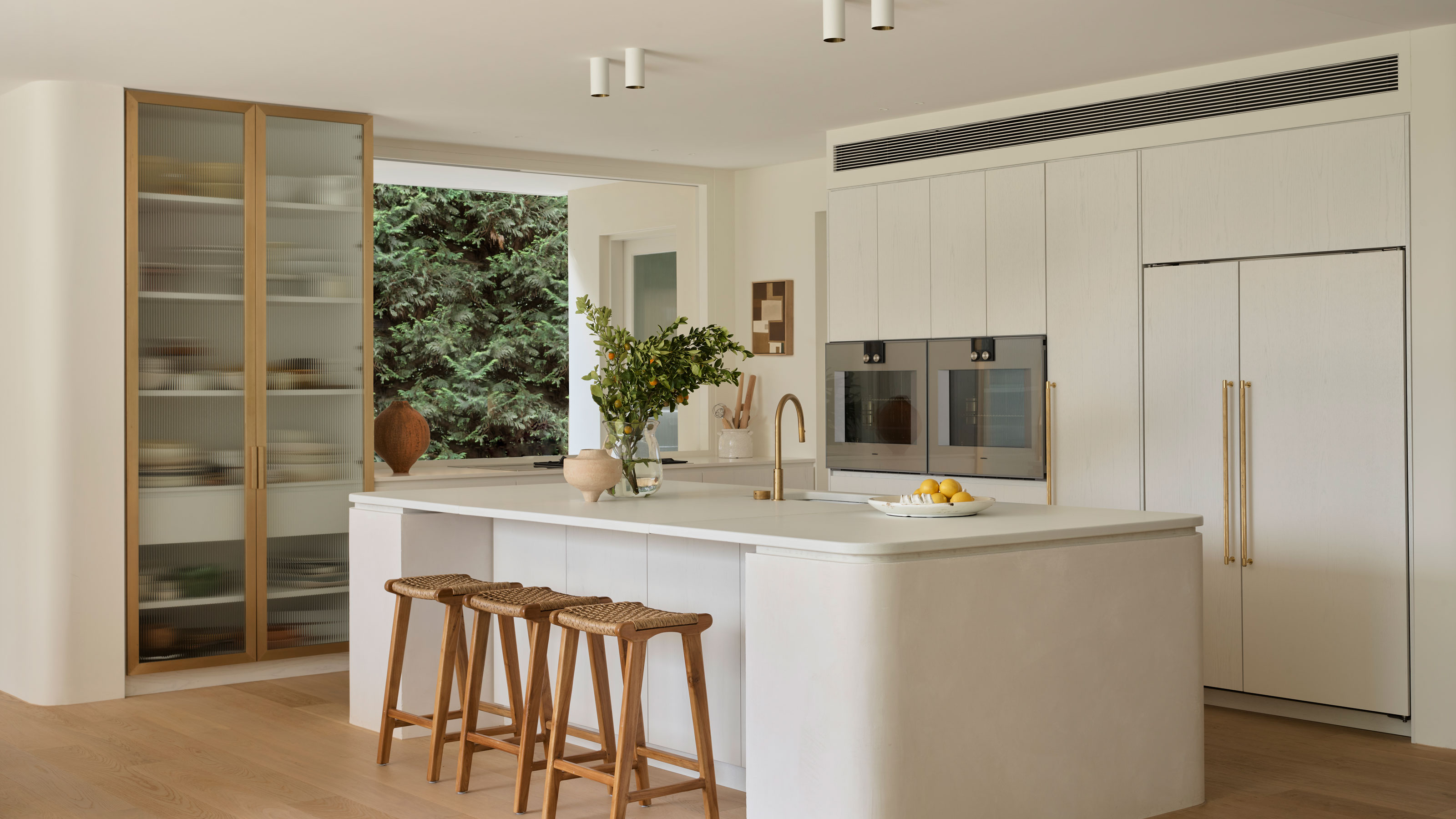 What Can I Choose Instead of Brass Taps? 4 Finishes That Are Emerging in 2025's Kitchens and Bathrooms
What Can I Choose Instead of Brass Taps? 4 Finishes That Are Emerging in 2025's Kitchens and BathroomsIf you want to try something a little different for your kitchen or bathroom finishes, these are the trending styles in taps beyond classic brass
By Seraphina Kyprios Published
-
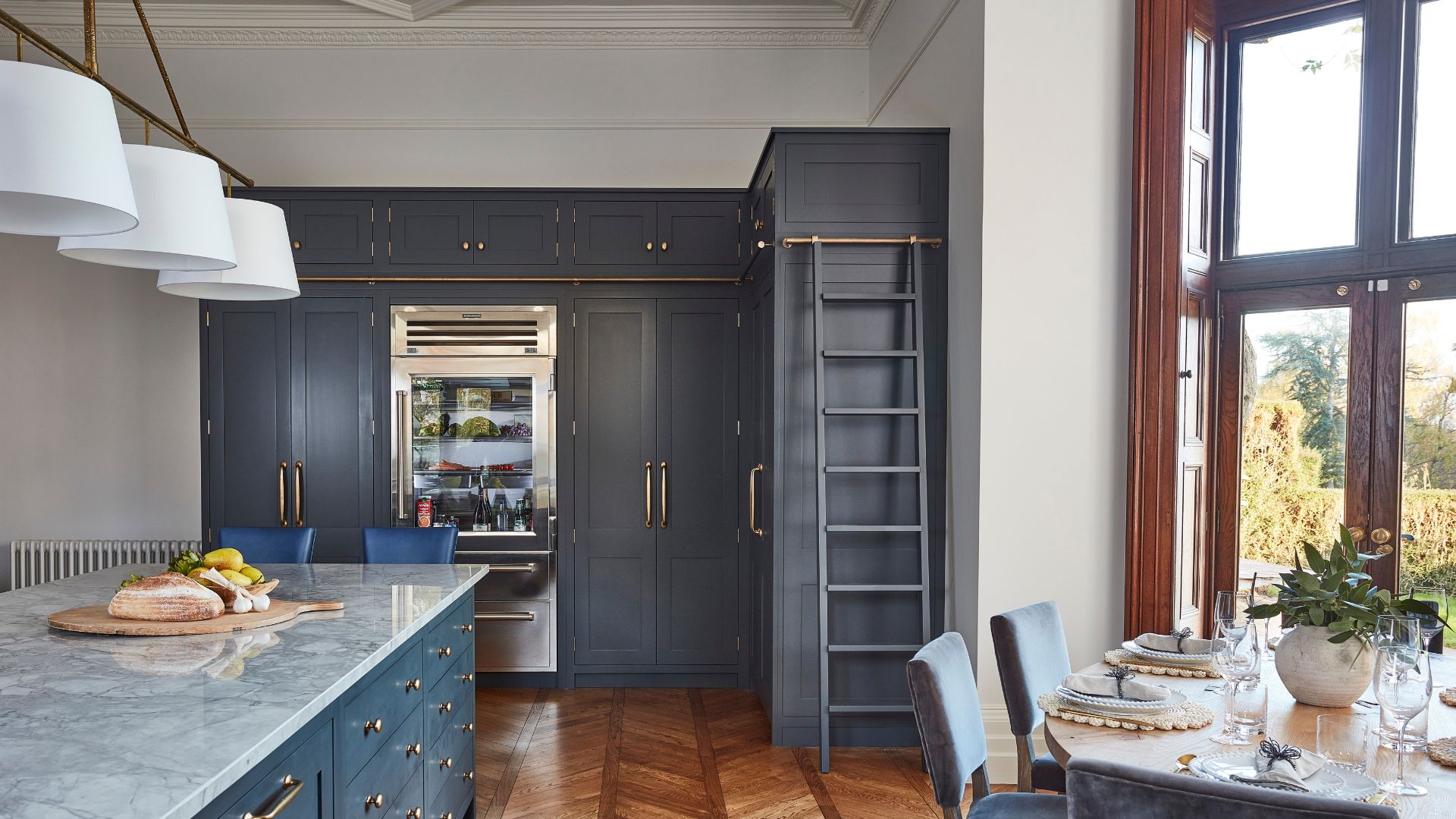 Kris Jenner’s 'All-Green' Glass Fridge Is My Organization Inspo of the Week — Here Are 5 Smart Storage Takeaways I'll Be Adopting
Kris Jenner’s 'All-Green' Glass Fridge Is My Organization Inspo of the Week — Here Are 5 Smart Storage Takeaways I'll Be AdoptingIf you're looking for fridgescaping inspiration, you might not think to look to Kris. But her all-green fridge says otherwise. Here are five tips we've learnt.
By Amiya Baratan Published
-
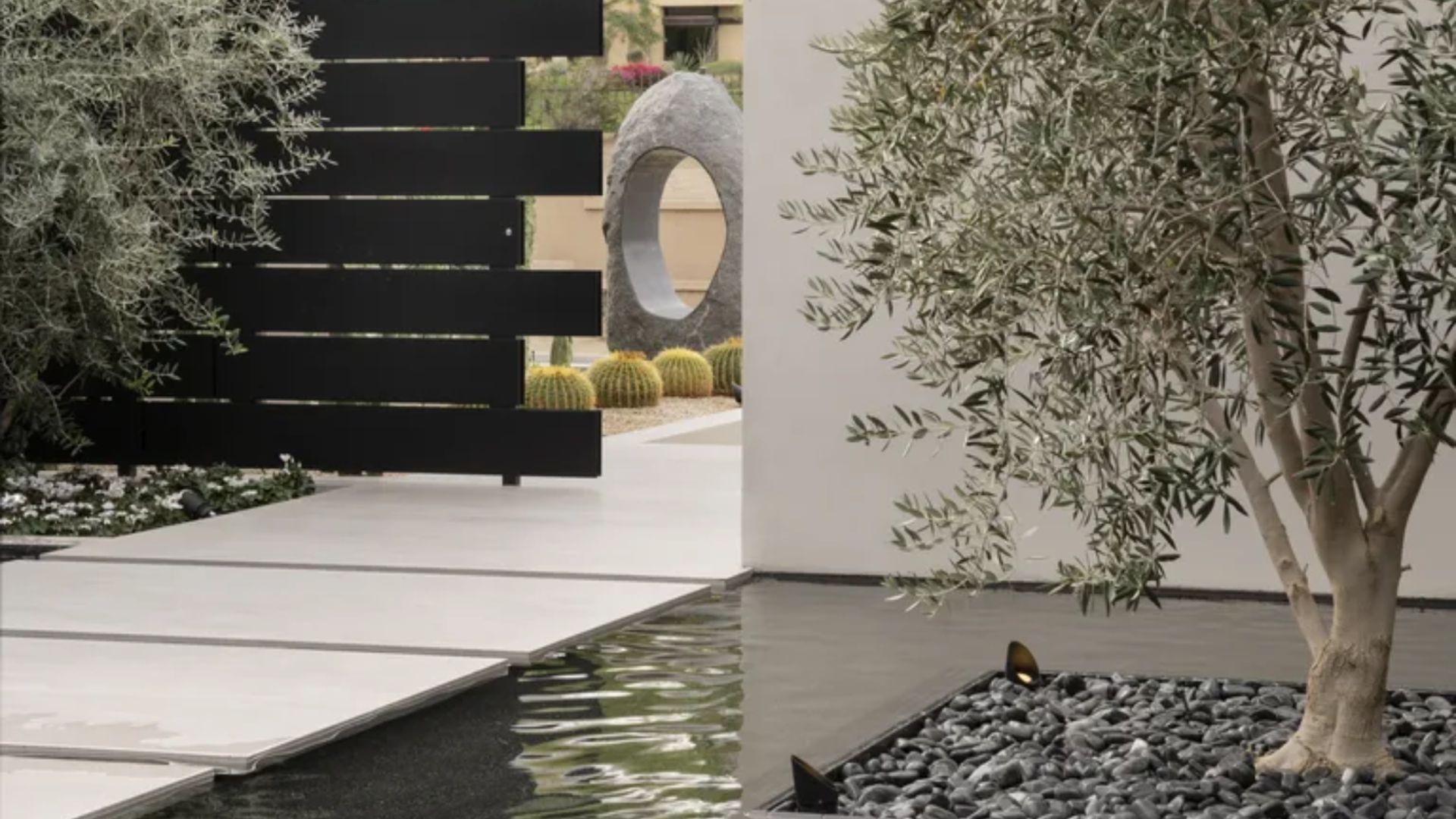 8 Tranquil Water Garden Ideas That Look Beautiful and Train Your Ear Away From Noisy Outdoor Distractions
8 Tranquil Water Garden Ideas That Look Beautiful and Train Your Ear Away From Noisy Outdoor DistractionsIf you enjoy spending time outdoors and are looking for ways to elevate your backyard's ambiance, here are 88 water garden ideas that are sure to inspire.
By Amiya Baratan Published
-
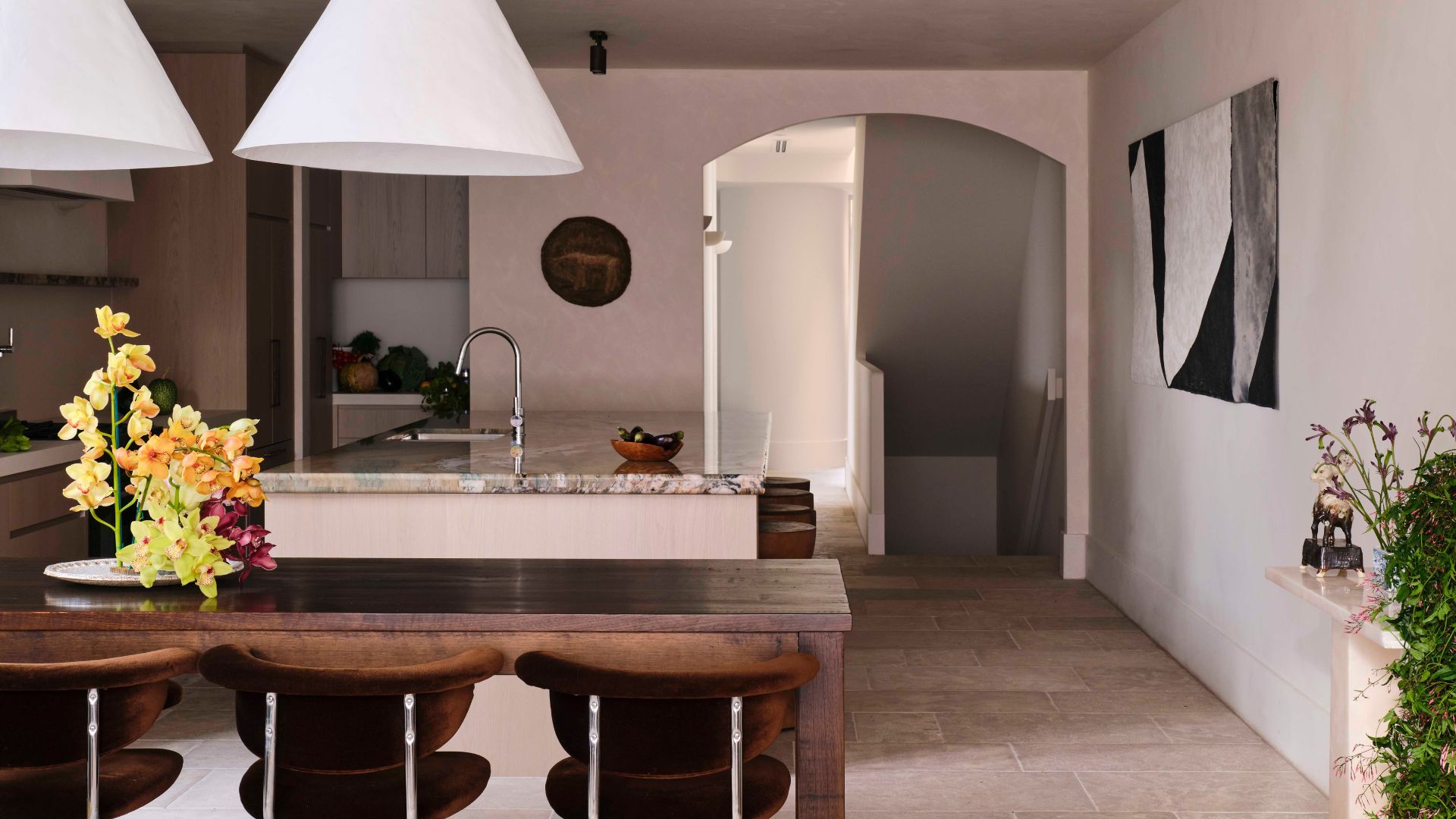 8 Ways to Make Your Home Smell Like Spring — The Tips, and Scents, That Feel Fresh on the Nose for the New Season
8 Ways to Make Your Home Smell Like Spring — The Tips, and Scents, That Feel Fresh on the Nose for the New SeasonDon't get caught lacking with wintery home fragrance now that spring has sprung
By Amiya Baratan Published
